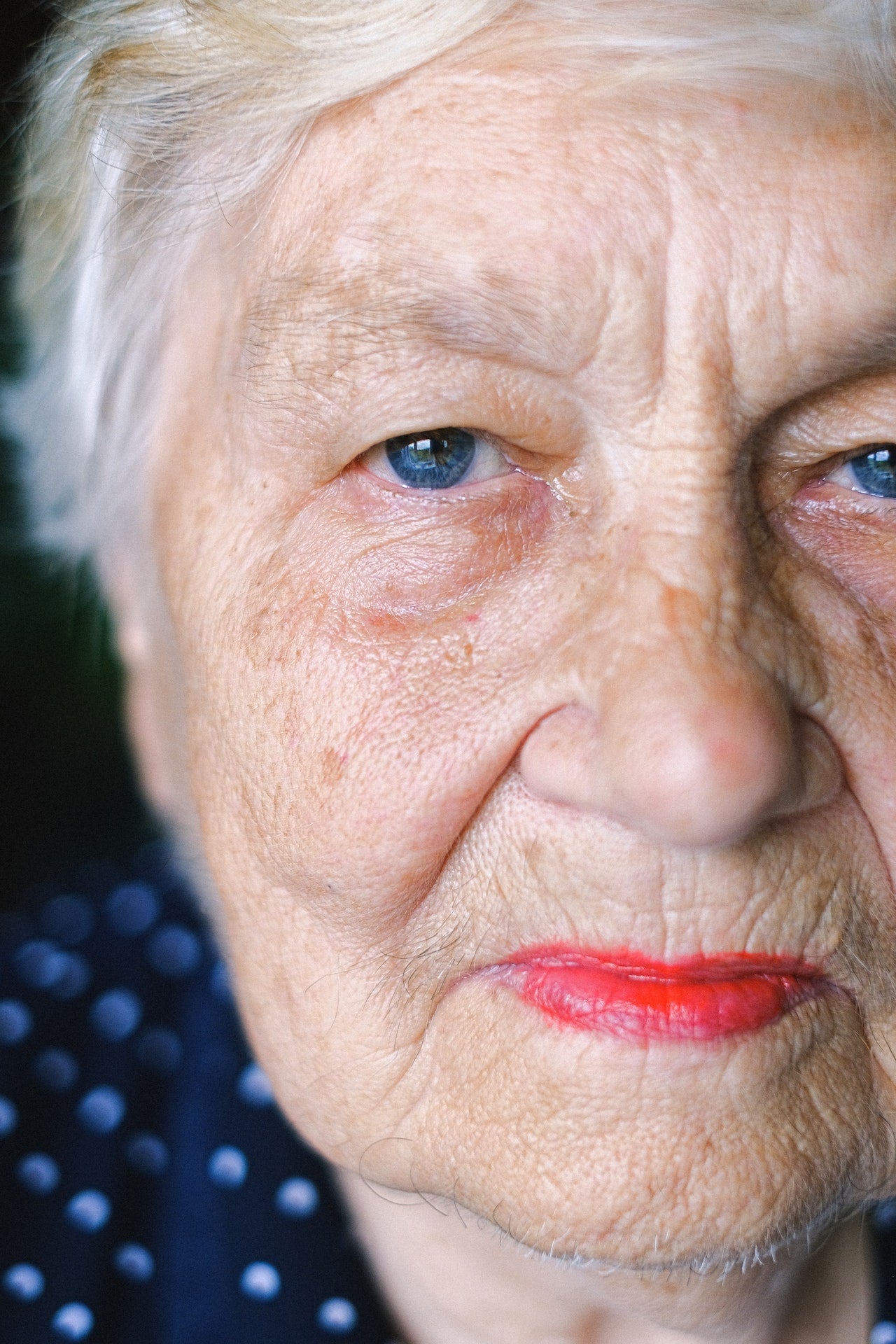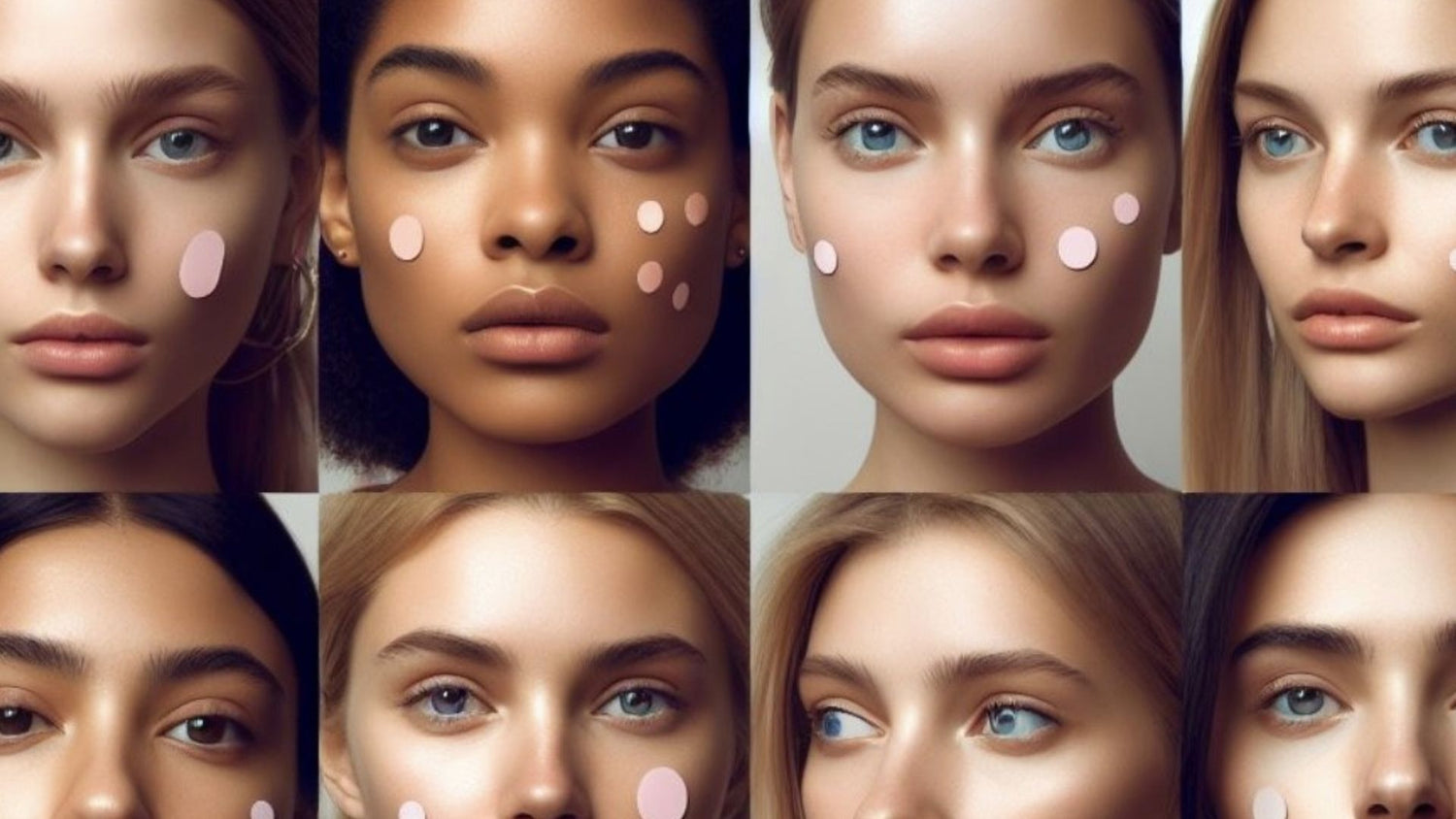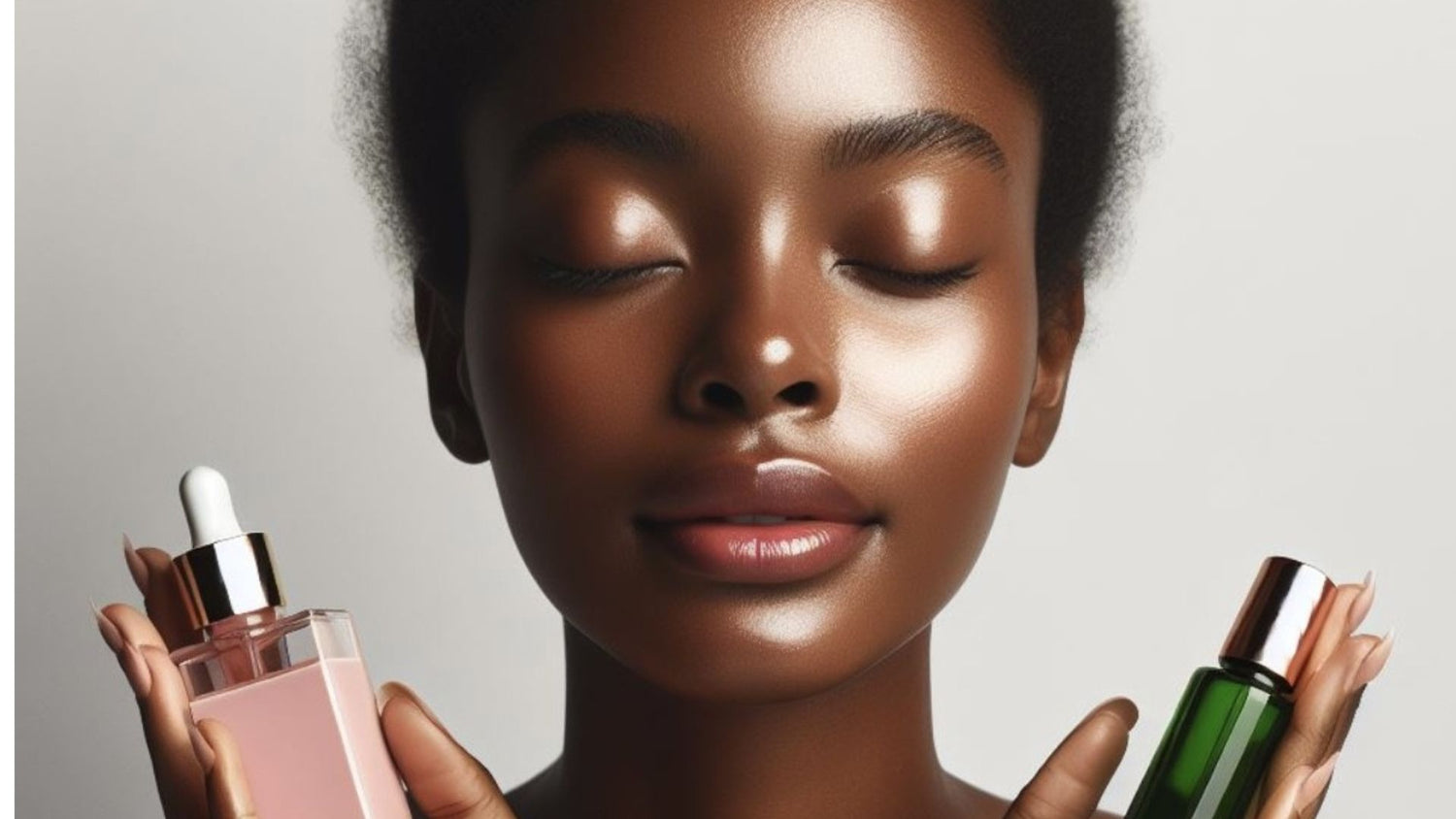Dark spots on your face can make you feel self-conscious and unhappy about your appearance. While there may be more invasive ways to deal with dark spots, what if there was a vitamin for dark spots that could help fade them instead?
There are at least three vitamins that have been used with varying degrees of success to help fade dark spots: Vitamin C, Vitamin B12 and Vitamin E. Each has its unique properties and benefits, but one stands well above the others, and that’s Vitamin C.
What Causes Dark Spots?
Dark spots result from the production of too much melanin, or where the melanin has become clustered. Melanin is the pigment that gives skin its color.
These dark spots can be age spots, also called sun spots, solar lentigines, liver spots, or even senile freckles. Although younger people can get these with excess sun or tanning bed exposure, these dark spots most often affect people in middle age. And you are more at risk for age spots if you have a history of frequent or severe sunburns.
Melasma dark patches that occur on the face as a result of UV exposure, genetics, and hormonal issues, such as during pregnancy (called chloasma), is another type of dark spot. Melasma generally affects women more often than men.
Finally, dark spots can be post inflammatory hyperpigmentation, or PIH. This occurs most notably with acne, but can also be caused by any injury to the skin, including insect bites. After the inflammation subsides, a dark spot remains which, as with all dark spots, is caused by excess melanin production.
While possibly unsightly, most dark spots are not dangerous. However, some can be cancerous or can become cancerous. This is called melanoma and it is very serious. If you notice any changes in your dark spots or have any concerns about them, have them checked immediately by a dermatologist.
What Vitamin is good for Dark Spots?
While many vitamins have been, and can be used, for dark spots, the best vitamin for dark spots is Vitamin C. And the best way to get its benefits to your skin is by applying it topically.
Vitamin C is well known for its powerful antioxidant effects. Antioxidants like Vitamin C fight free radicals in your environment caused by such triggers as pollution, cigarette smoke, ultraviolet rays, and even your own metabolic processes.
Free radicals are unstable atoms which are missing an electron. These atoms can steal the electrons they need from the healthy cells of your skin, causing serious damage. Not only does this damage cause signs of premature aging, such as fine lines and wrinkles, but it can also cause dark spots to develop.
Among the many benefits of Vitamin C serum is its ability to provide electrons to free radicals, thus rendering them harmless against your skin. This helps to prevent damage to your skin, including the formation of free radical induced dark spots, as well as fine lines, wrinkles, and sagging.
Another way that Vitamin C helps with dark spots is that it interferes with the production of melanin, thus fading age spots, sun spots, melasma, and the post inflammatory hyperpigmentation associated with acne and other skin injuries. It also evens out skin tone, helping to diminish the look of dark spots.
A 1996 study, using magnesium L-ascorbyl-2-phosphate, a Vitamin C derivative, was found to have had a significant lightening effect on chloasma or senile freckles in 19 out of 34 patients. In that study, the researchers chose not to use ascorbic acid, which is the the purist, most active form of Vitamin C, due to its instability.
However, BeautyStat Cosmetics has developed the world’s first stable 20 percent L-ascorbic acid Vitamin C serum: the Universal C Skin Refiner. L-ascorbic acid is the best form of the vitamin for dark spots and all the benefits of Vitamin C, including collagen production and free radical scavenging. Furthermore, Universal C Skin Refiner contains 20 percent Vitamin C so you get maximum benefits.
Not only is Vitamin C the best vitamin for dark spots, it also brightens your complexion. Free radical damage can make the skin look dull, but Vitamin C’s antioxidant effects can brighten lackluster skin by healing this damage. Vitamin C heals the skin not only through its antioxidant properties, but also through its ability to stimulate the production of collagen. Collagen is a protein in the skin responsible for keeping it plump, firm, and smooth.
Vitamin C’s ability to interfere with melanin production allows it to help even your skin tone without altering the color of your skin.
Another vitamin for dark spots is Vitamin B12. While it may help to fade dark spots and to even the skin tone in older people, a deficiency of Vitamin B12 has been known to cause dark spots. However, this vitamin for dark spots is generally more effective when consumed in your diet, or as a supplement, rather than applied topically. It’s really more about preventing dark spots than fading existing ones.
Vitamin E in dermatology is fairly weak. While vitamin E does interfere with the production of tyrosinase (an enzyme necessary for the production of melanin, as well as interfering with some of the processes of the cells that make melanin, the melanocytes), its depigmenting effect has been shown to be minimal.
However, when Vitamin E is combined with Vitamin C, the effects are increased above and beyond what you would expect from the simple blending of these two vitamins for dark spots.
But, Vitamin E is a powerful antioxidant in its own right, which allows it to fight off the free radicals that damage your skin and can lead to dark spots. Also, Vitamin E has anti-inflammatory properties which help fade scars and the dark spots that result from them. So although a bit weak as a vitamin for already-existing dark spots, like age spots and melisma, it can be beneficial in these other circumstances and most especially when paired with Vitamin C.
How to use Vitamin C for Dark Spots
When using this vitamin for dark spots it is important to remember a couple of things. First Vitamin C is best used topically. Serums provide the best absorption and usually the highest concentration of vitamins, so they are preferred over creams for the face.
That said, you should always do a patch test any time you introduce a new active ingredient to your facial skin. Take a small amount of Vitamin C serum and apply it to your inner arm or to the inside of your elbow. If you have no adverse reaction in 24 to 48 hours, it should be safe to apply to your whole face. Keep in mind, a little stinging or redness is normal, especially at first. You may want to start slowly by using the serum once or twice a week and then moving up to every day as tolerated.
Second, Vitamin C serum is best used in your morning routine, so you can get the most out of its antioxidant effects by preventing free radical damage and any resulting dark spots. Also, you don’t want to pair it with nighttime serums such as retinol. However, if you do wish to use a Vitamin C serum at night, this antioxidant will help repair sun-damaged skin and will still interfere with melanin production to help fade those dark spots.
Here’s how you use this vitamin for dark spots on your skin.
- Thoroughly cleanse your face.
- Apply your Vitamin C serum to clean, dry skin and allow it to absorb.
- Apply moisturizer.
- Apply sunscreen of at least SPF 30. (While Vitamin C can help protect your skin from the harmful effects of the sun, it is no substitute for sunscreen.)
How Long for Vitamin C to Fade Dark Spots?
When used consistently, you can begin seeing results from Vitamin C on your face within 2 to 3 weeks. However, it may take 2 to 4 months to see significant improvement in your dark spots. Meanwhile, Vitamin C will be brightening your complexion by healing free radical damage and also evening out your overall skin tone.
How to use Vitamin E Oil for Dark Spots
This vitamin for dark spots can be used directly on the skin of your face, although again, a patch test is recommended. It can also be mixed, as stated above, with Vitamin C for greater results.
Since pure Vitamin E oil is so thick, it doesn’t really lend itself to daytime use. But Vitamin E oil is a good overnight treatment. Not only can this vitamin help fade dark spots, it is also a strong antioxidant that fights free radical damage that causes the signs of premature aging, such as fine lines and wrinkles. Of course, this free radical damage can cause dark spots, so Vitamin E’s antioxidant properties actually help prevent them from forming.
Pure Vitamin E oil isn’t recommended for those with acne-prone skin or who are prone to breakouts or clogged pores.
Here’s how to use this vitamin for dark spots.
- Cleanse your face thoroughly.
- Pat your face dry with a towel.
- Apply Vitamin E oil all over your face, or just to your trouble spots, at bedtime. Give it plenty of time to absorb. You can gently rub it in if you wish for better penetration.



